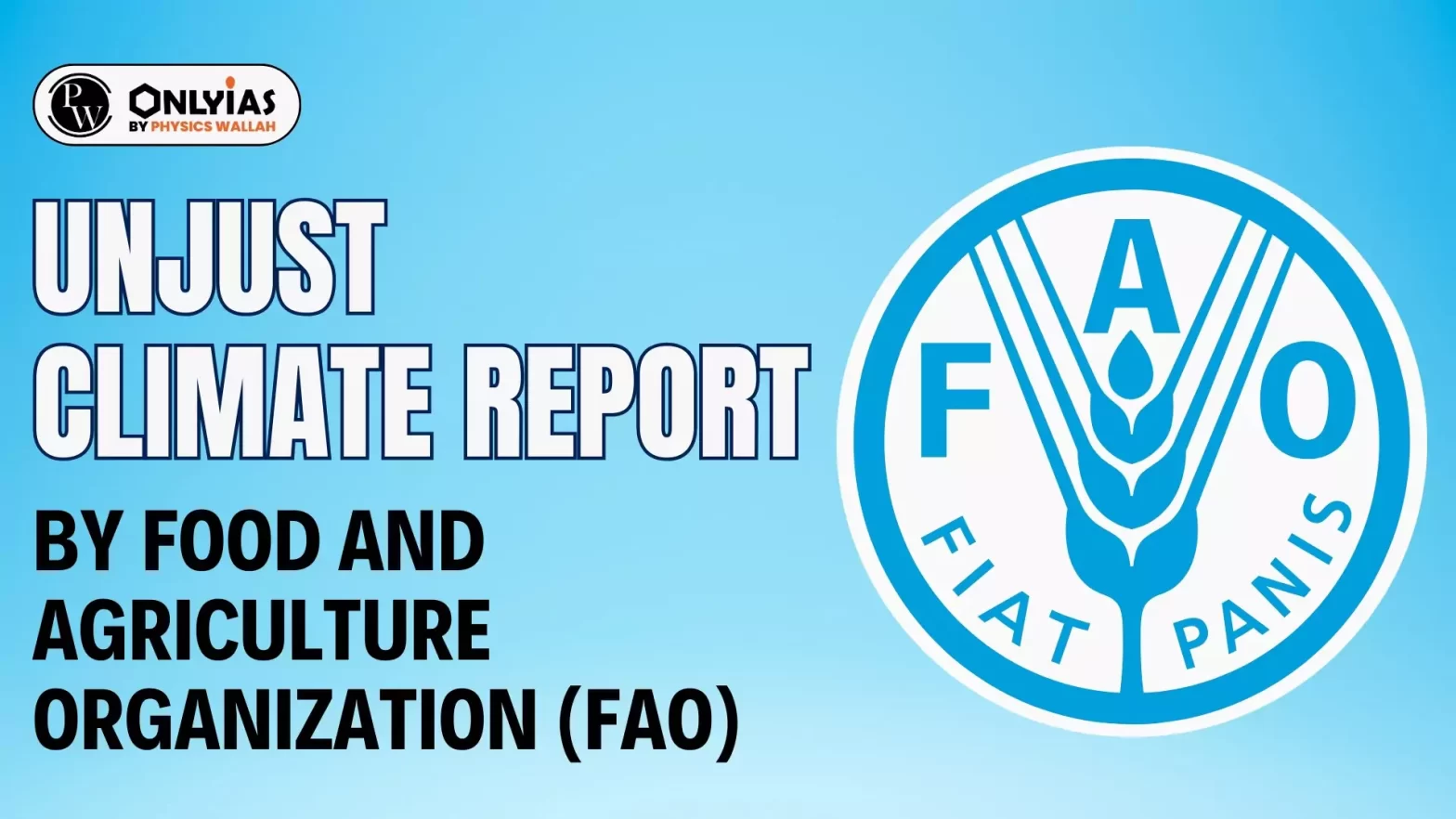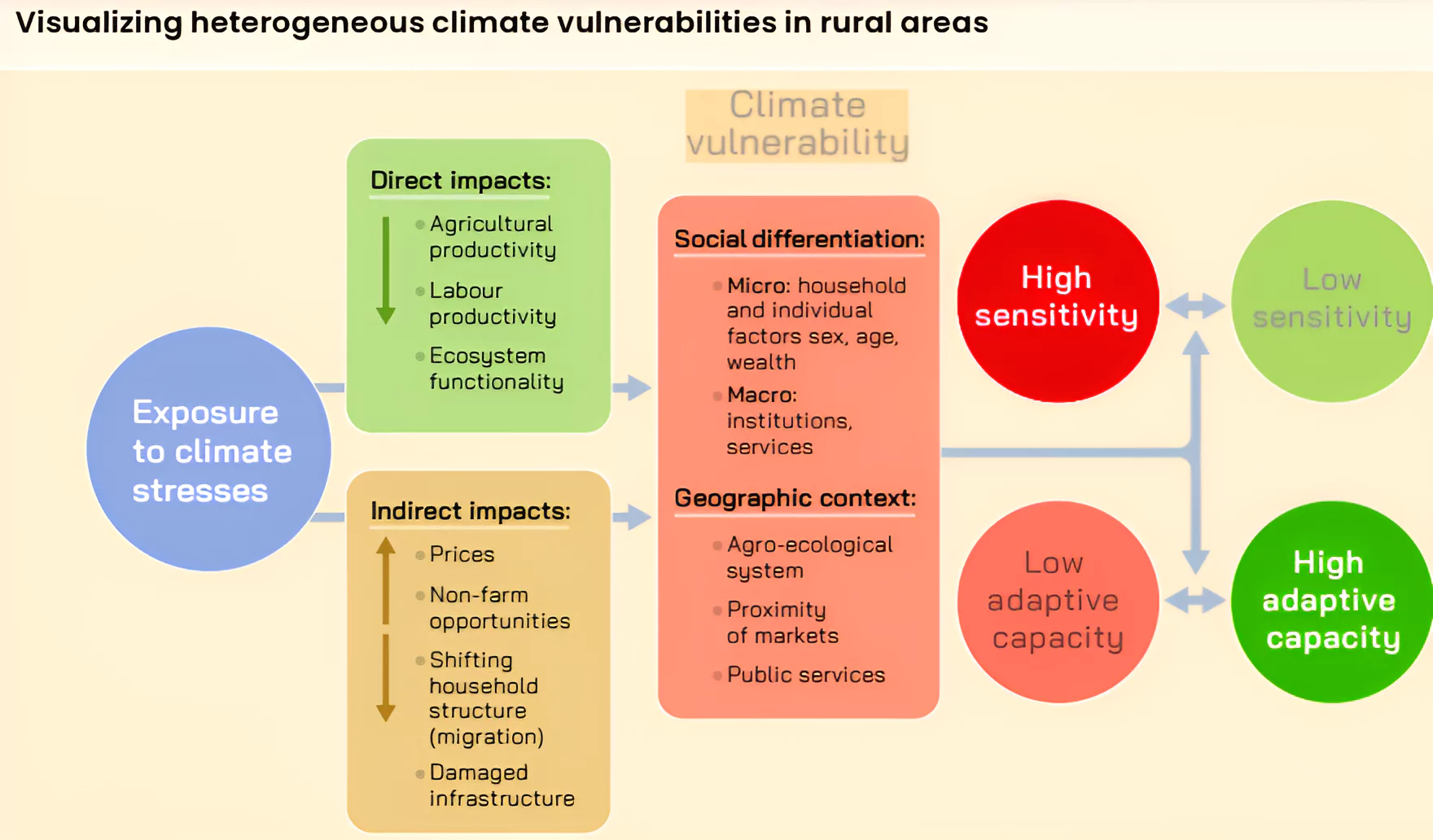![]() 6 Mar 2024
6 Mar 2024
English
हिन्दी

This Article is based on the news “UN warns of climate change impact on farms and rural households run by women in poor countries” which was published in the PTI. Recently, The Food and Agriculture Organization (FAO) has released a report: “The unjust climate: Measuring the impacts of climate change on rural poor, women, and youth”.
Food and Agriculture Organization (FAO):
|
|---|
Why is the Climate Unjust?
|
|---|

| Must Read | |
| NCERT Notes For UPSC | UPSC Daily Current Affairs |
| UPSC Blogs | UPSC Daily Editorials |
| Daily Current Affairs Quiz | Daily Main Answer Writing |
| UPSC Mains Previous Year Papers | UPSC Test Series 2024 |
<div class="new-fform">
</div>